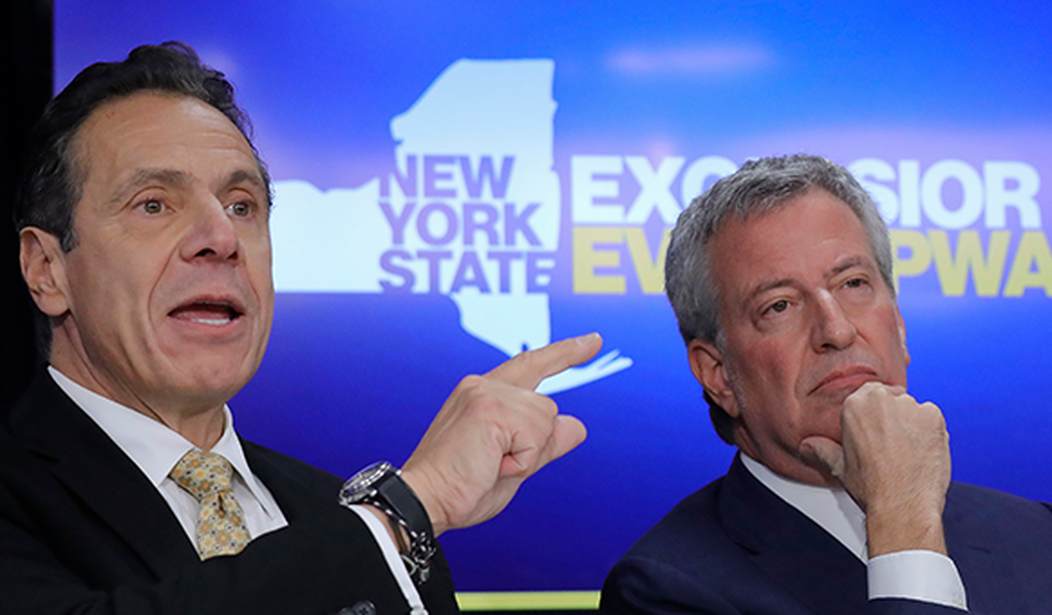Governor Cuomo blamed President Trump and the Tax Cuts and Jobs Act for a decrease of $2.3 billion in New York State tax revenues in December and January. He indicated that the revenue reduction was the result of the new federal tax law. He believes an unprecedented number of New York residents permanently moved from New York to Florida during 2018 because New York State taxes are essentially no longer deductible on federal income tax returns of wealthy taxpayers.
Just a wild guess, but a loss of 11% in the Dow Industrial Average during the fourth quarter of 2018 might have had a bit more impact on New Yorkers’ taxable income in the fourth quarter than a few taxpayers leaving the state. Individual taxpayers undoubtedly recognized few capital gains during that period, but undoubtedly did recognize losses.
$2.3 billion is a huge amount of money. But, in New York State, $2.3 billion represents only 1.3% of the State’s annual revenues of $175 billion. A responsible budget would have reserves far more than 1.3% of projected revenues.
There is little, if any, evidence to support that enough New York residents moved out of the state to cause a two-month impact of $2.3 billion. $2.3 billion equates to an annual reduction in taxable income for the State of New York of about $26 billion. In 2016, $26 billion was greater than one-half of the total interest, dividends and capital gains of every New Yorker reporting more than $1 million of taxable income. The number of residents moving out of new York would have cratered the New York housing market as well as caused bubbles elsewhere. It just did not happen.
What would make a taxpayer move from New York? Could it be the sole result of a loss of a deduction for New York taxes? Ignoring the new tax benefits in the new federal tax law, including the reduction in rates, that change will cost each wealthy New York resident about $33,600 per year per million dollars of income. Would someone earning $10 million per year in interest and dividends leave New York to save $336,000 per year?
Recommended
Given that the top federal income tax rate decreased by 2.6% for wealthy taxpayers in 2018 and taxpayers owning rental real estate or owning a small business received new tax deductions, overall, these two benefits pretty much offset the state tax deduction for most wealthy taxpayers. Total taxes for wealthy New Yorkers likely stayed about the same.
In the remote chance that the Governor is correct (I think not) in his reasoning, he needs to pare back his future budgets or raise taxes by startling amounts. If that reduction in income actually resulted from taxpayers having moved from New York, his state is in dire straits. It does not take a PhD in math to multiply $2.3 billion times 4 and conclude New York’s governor is going to need to reduce annual future spending by $9.2 billion per year. If Governor Cuomo is correct and these residents are gone forever, the State of New York is looking at a permanent 25% reduction in individual tax revenues. To put such an amount in perspective, $9.2 billion is almost equal to the entire budget of the nearby state of Rhode Island. And what if more New Yorkers flee the state?
And if Governor Cuomo is correct, New York taxpayers must have reacted to the Tax Cuts and Jobs Act like Superman, faster than a speeding bullet. The federal bill passed in December 2017; to no longer be a New York resident in 2018, the taxpayer must have spent less than 184 days in New York during 2018 and ‘pass’ a series of somewhat subjective and arbitrary tests to be considered a former resident. Sales and escrow closings do not occur overnight.
Governor Cuomo remains upset that New Yorkers now have a limit on the deductibility of state income taxes that is effectively equal to the state tax deductions available in other states. After decades of low tax state taxpayers indirectly subsidizing New York’s welfare state, now those state taxpayers are on equal footing with New Yorkers.
Governor Cuomo is likely wrong in the short run, but over time, if New Yorkers do not believe the State of New York is the best place for them to live, they will move elsewhere. Part of that equation for each individual will be New York tax rates. Every state is in competition for tax paying residents.

























Join the conversation as a VIP Member